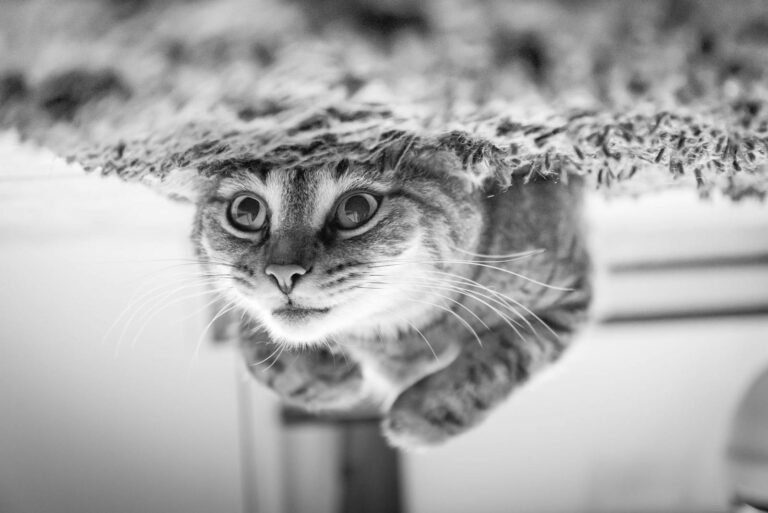How to Know if Your Cat Is Sick?
Understanding your feline companion’s health is vital for ensuring a long and happy life together. Cats are known for their independent nature, often hiding their discomfort or illness until it’s too late for effective treatment. This article will explore How to Know if Your Cat Is Sick: 10 Warning Signs that every cat owner should be vigilant about. Recognizing these signs early can make a significant difference in your cat’s recovery and overall well-being.
Introduction: Understanding Feline Health and Early Detection
Taking care of a cat goes beyond providing food, water, and shelter; it also includes monitoring their health and behavior. Unlike dogs, who often display clear signs of distress, cats are more subtle in their expressions of discomfort. Understanding the nuances of feline health is crucial for early detection of potential issues.
Early detection can lead to prompt veterinary intervention, preventing minor ailments from escalating into serious health concerns. This not only ensures the well-being of your pet but also saves you potential heartache and financial costs down the road. By educating yourself on the various warning signs of sickness, you become an advocate for your cat’s health.
The Importance of Regular Check-ups
Routine veterinary visits play an essential role in feline healthcare. Annual check-ups allow veterinarians to catch any underlying issues early, even before symptoms become apparent. Vaccinations and preventive treatments can further protect your feline friend from common diseases.
Not all health problems manifest immediately; some may be insidious and develop over time. Regular check-ups help monitor your cat’s health status and inform you of what to look for between appointments.
Bonding with Your Cat
A strong bond with your feline friend allows you to be more attuned to their behaviors and habits. Spend quality time with your pet each day, observing their routines, eating patterns, and energy levels. Cats are creatures of habit, and changes in these areas might indicate that something is wrong.
When you engage with your cat regularly, you’ll find it easier to spot when they are not acting themselves. This close relationship will encourage proactive measures for their health rather than reactive ones when a problem arises.
10 Critical Warning Signs Your Cat Might Be Sick
Cats can exhibit a variety of signs when they are unwell. Some are obvious, while others are more subtle. Awareness of these signs can be life-saving, prompting you to seek veterinary assistance sooner rather than later.
Behavioral Changes: An Overview
Behavioral shifts can be one of the first indicators that something is amiss with your cat. Just as humans display behavioral changes when they feel ill, so do our furry friends.
Lethargy
Lethargy is perhaps one of the most concerning behavioral signs. A normally playful and energetic cat suddenly becoming inactive or sleeping excessively may mean something is wrong.
While occasional napping is typical for cats, especially as they age, a drastic change in activity level warrants attention. If your cat is less responsive to interactive play or seems uninterested in usual activities, it may be time to consult a veterinarian.
Hiding
Cats often have a natural instinct to conceal signs of illness, which can include seeking out isolated spots to hide. This behavior may stem from their evolutionary background as prey animals.
If your usually social cat starts spending excessive time hidden away, it could indicate pain or discomfort. Pay attention to how quickly they come out to greet you and their general demeanor when you approach them.
Increased Aggression
An otherwise calm and friendly cat displaying sudden aggression can be alarming. Changes in behavior, such as hissing, swatting, or biting, can sometimes signal discomfort or pain.
Aggression may also stem from anxiety caused by underlying health issues. Keep in mind that it’s essential to approach an aggressive cat with caution; they may be suffering and need immediate medical attention.
Changes in Appetite, Water Consumption, and Litter Box Habits
Changes in appetite, drinking habits, and litter box usage are critical signals indicating that your cat may be unwell.
Fluctuations in Appetite
Cats are notorious for being finicky eaters, but notable changes in appetite—such as refusing to eat or overeating—can be a red flag. A decrease in food intake could result from dental issues, gastrointestinal problems, or even stress.
On the other hand, increased hunger could be indicative of conditions like diabetes or hyperthyroidism. It’s essential to keep track of your cat’s eating habits and any accompanying changes.
Increased Thirst
An increase in water consumption, known as polydipsia, can also point to health issues. When cats drink more than normal, they may suffer from conditions like kidney disease, diabetes, or hyperthyroidism.
Monitor your cat’s water intake and observe whether they are urinating more frequently. If you notice a dramatic shift in these patterns, it’s crucial to talk to your vet right away.
Litter Box Changes
Changes in litter box usage, such as straining to urinate or defecate, or having accidents outside the box, can signify a range of health issues. Urinary tract infections, constipation, and even kidney problems may be at play here.
Pay attention to the consistency of their stools as well. Diarrhea or persistent vomiting should always trigger a discussion with your veterinarian.
Physical Symptoms: Recognizing Vomiting, Diarrhea, and Respiratory Distress
Physical signs of illness can often be among the most noticeable, and recognizing them promptly is key to addressing health concerns.
Vomiting
While occasional vomiting may not be cause for alarm, frequent or severe vomiting is a sign of underlying issues. Potential causes include dietary indiscretion, infections, or even more serious conditions such as liver disease or pancreatitis.
It’s essential to note the frequency and appearance of the vomit—if it’s mixed with blood or appears abnormal in color, immediate veterinary attention is necessary.
Diarrhea
Similar to vomiting, diarrhea can arise from various causes, ranging from dietary changes to infections. Prolonged diarrhea can lead to dehydration and requires prompt assessment to determine the underlying cause.
Watch for additional symptoms, such as lethargy or continued vomiting, which could indicate a more serious condition.
Respiratory Distress
Trouble breathing, coughing, or wheezing are serious symptoms that require urgent veterinary evaluation. Conditions such as asthma, pneumonia, or heart problems may manifest through respiratory symptoms.
If your cat demonstrates difficulty breathing or exhibits a bluish tinge to their tongue or gums, this necessitates immediate action.
What to Do: When to Seek Veterinary Care for Your Cat
Knowing when to take your cat to the veterinarian can be difficult. Many pet owners hesitate, unsure whether they’re overreacting or not. However, understanding specific triggers for veterinary visits can provide clarity.
Assessing Severity
When you observe any of the aforementioned warning signs, assess the severity of the situation. If your cat shows multiple symptoms or if the signs persist for more than 24 hours, it’s time for a vet visit.
In situations where breathing difficulty is present or if your cat is unresponsive, don’t wait. Immediate veterinary care can prevent complications or worsening conditions.
Keeping Records
When preparing for a veterinary visit, keeping notes of observed behaviors, symptoms, and any changes in routine can be beneficial. Accurate records help your veterinarian understand what may be happening with your cat and the best course of action.
Document details such as when symptoms began, any potential environmental changes (like new pets or alterations in diet), and any physical signs you’ve noticed.
Trusting Your Instincts
As a cat owner, you know your pet better than anyone else. If something feels off, trust your instincts. Even if the symptoms appear minor, it’s always better to err on the side of caution.
Regular communication with your veterinarian can help guide your decision-making process. Establish a rapport with your vet who understands your cat’s history and your concerns.
Conclusion
Detecting sickness in your cat hinges on your ability to recognize subtle changes in behavior and physical condition. Knowing How to Know if Your Cat Is Sick: 10 Warning Signs equips you with the essential knowledge needed to act swiftly in protecting your furry friend. From shifts in appetite to unusual physical symptoms, awareness of these signs can significantly impact your cat’s health and longevity. Remember, regular veterinary check-ups, maintaining a close bond with your pet, and trusting your instincts go a long way in fostering your cat’s well-being.







